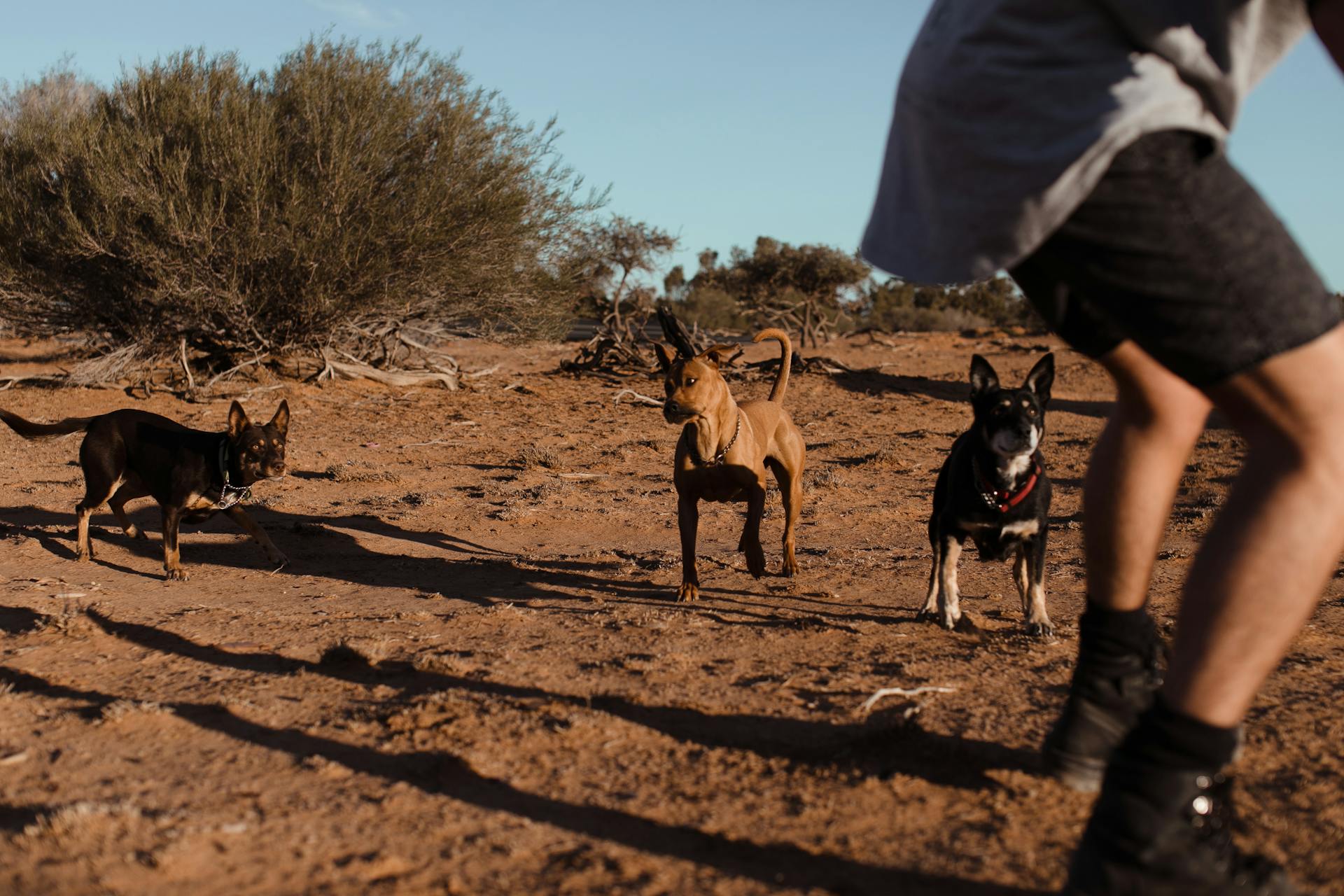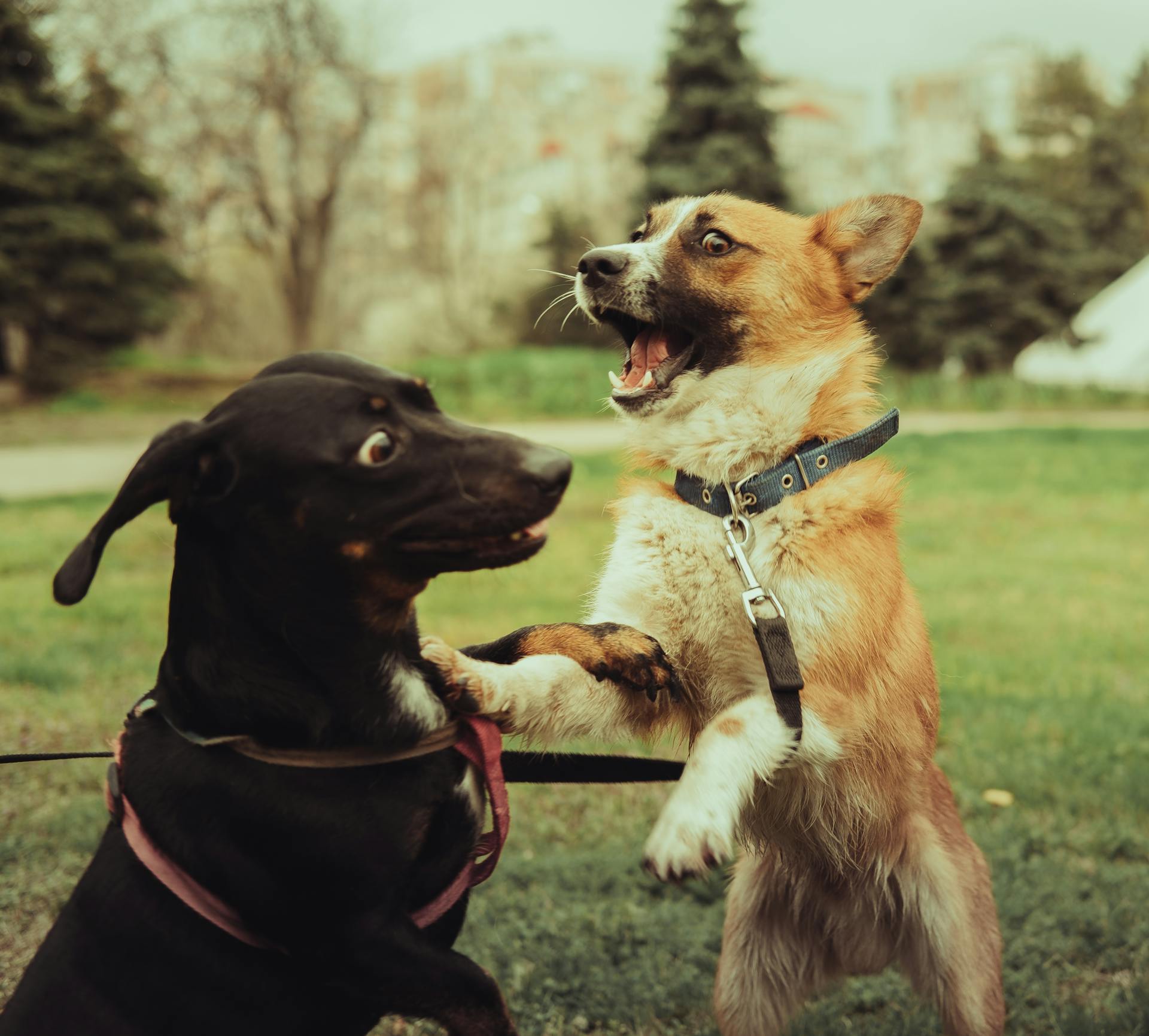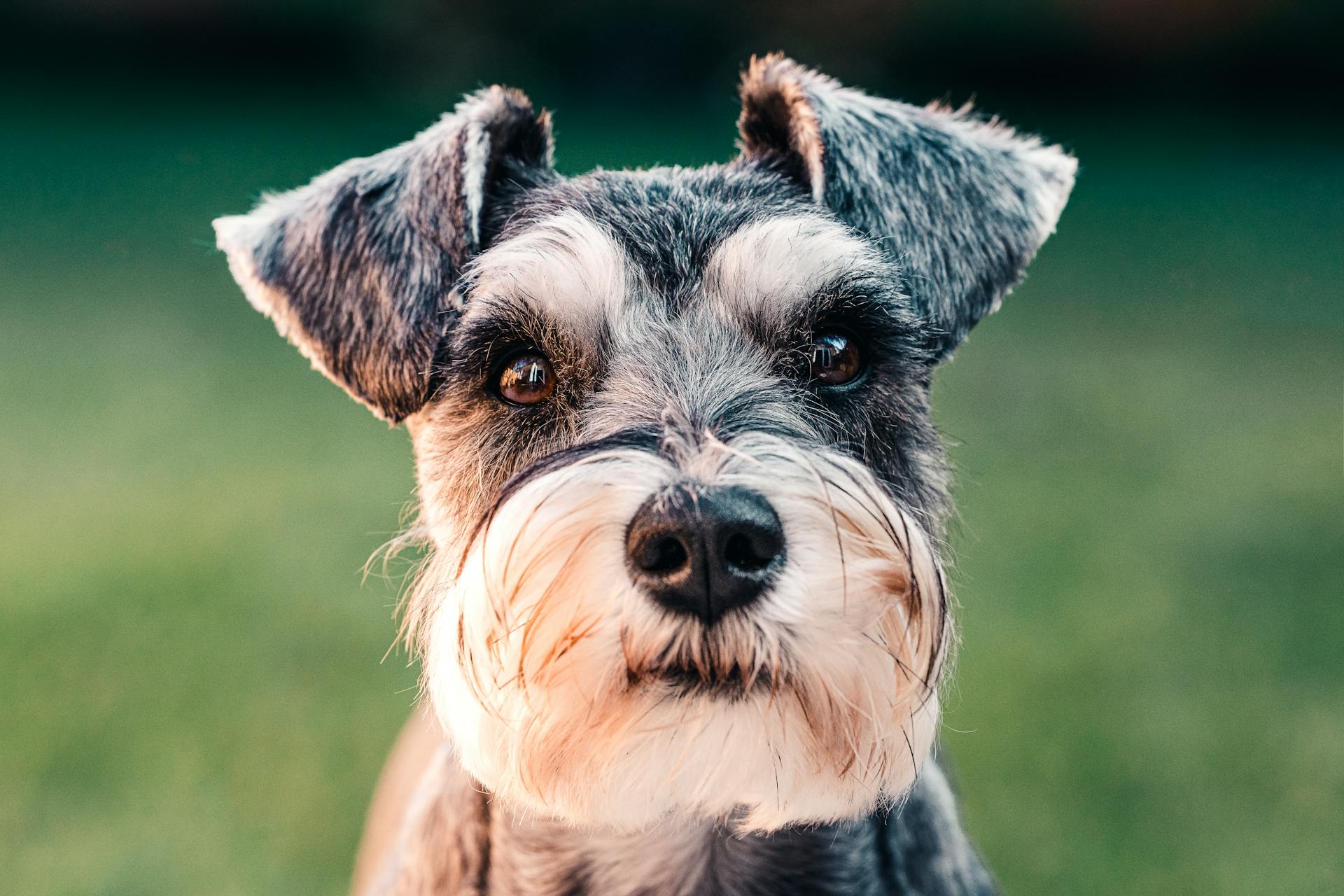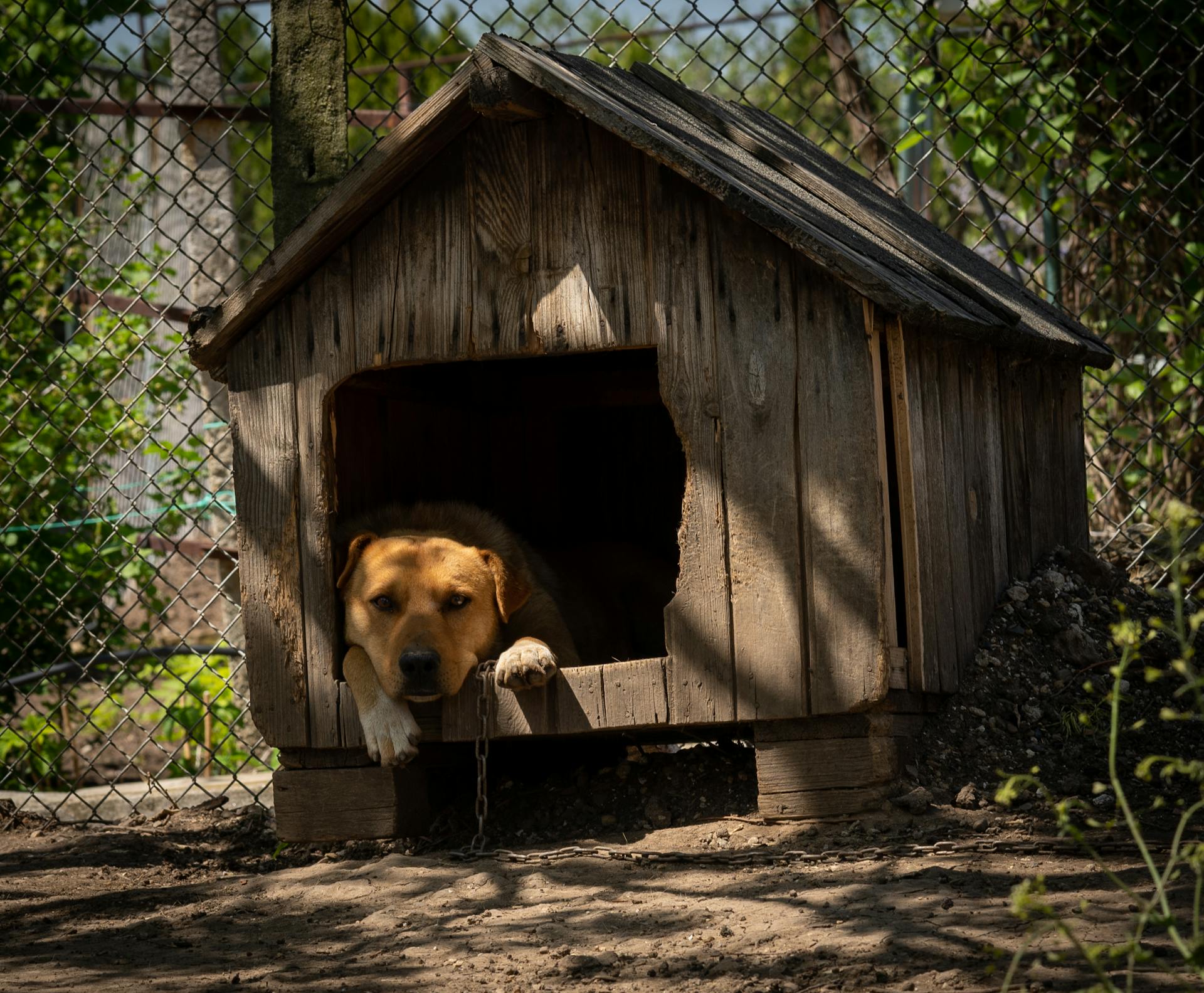
If your dog starts sneezing after boarding, it can be a worrisome experience.
Dogs can get kennel cough, a contagious respiratory infection that causes sneezing and coughing, at boarding facilities.
Some boarding facilities have a high risk of kennel cough due to the close proximity of dogs and the lack of proper ventilation.
Boarding facilities with a high turnover of dogs are more likely to spread kennel cough.
Causes of Dog Sneezing
Dogs sneeze for reasons beyond just clearing their nose. They sneeze to communicate excitement or fun during play.
Infectious diseases like kennel cough and distemper virus can cause sneezing in dogs. Upper airway obstructions, such as cancers or polyps, can also irritate the nasal passages and lead to sneezing.
Allergies, though less common in pets than humans, can cause sneezing in dogs and cats. Inhaled irritants like dust, perfumes, and pollen can also trigger sneezing.
Excessive sneezing could indicate an underlying health issue that requires attention. If your dog's sneezing is accompanied by other symptoms like nose bleeds, coughing, or excessive mucus, it's best to consult a vet.
You might like: Pomeranian Dog Sneeze
What Are the Symptoms of Dog Sneezing
So, you're wondering what the symptoms of dog sneezing are? A sneeze is a normal reflex for dogs, but if it's accompanied by a persistent and forceful cough, that's a different story.
Dogs with kennel cough can exhibit a range of symptoms, but sneezing is one of them. Some dogs may sneeze a lot, while others may just experience it occasionally.
A sneeze can be a standalone symptom, but it's often accompanied by other symptoms like eye discharge and a runny nose. These symptoms can vary in severity, but they're all part of the kennel cough package.
Here are some common symptoms associated with dog sneezing:
- Sneezing
- Eye discharge
- Runny nose
Should I Be Worried About My Pet
If your dog has been sneezing after boarding, it's natural to wonder if it's a cause for concern. Excessive sneezing that's happening far more frequently than usual is a red flag.
Some common signs of a more serious issue include mucus or discharge coming from their nose, nose bleeds or blood with their sneezing, and trouble breathing. These symptoms can be indicative of an underlying health problem.
Pawing at their nose or other signs of irritation can also be a sign that something is wrong. If you notice your dog exhibiting any of these behaviors, it's best to seek advice from your vet right away.
A temperature, drowsiness and lethargy, and disinterest in food can also be symptoms of a more serious issue. If you're concerned about your dog's health, don't hesitate to reach out to your vet for guidance.
Here are some common signs that your dog may be experiencing a health issue:
- Mucus or discharge coming from their nose
- Nose bleeds or blood with their sneezing
- Trouble breathing
- Pawing at their nose or other signs of irritation
- A temperature
- Drowsiness and lethargy
- Disinterest in food
Veterinary Care
If your dog has been sneezing after boarding, it's essential to take them to the vet to rule out any underlying conditions. A thorough examination, including a physical exam and laboratory testing, can help identify the cause of the sneezing.
The vet may order X-rays or other imaging tests to check for upper airway obstructions, such as tumors or foreign bodies. In some cases, sedation or anesthesia may be required for a more thorough evaluation. A visual examination under sedation or anesthesia can help the vet determine if there are any nasal tissues or upper respiratory tract issues.
Here are some possible causes of sneezing in dogs, as identified by veterinarians:
Don't wait to take your dog to the vet if they're experiencing persistent or severe sneezing – it's always better to be safe than sorry.
Symptoms of Tooth Infection
If your dog is sneezing, it could be a sign of a tooth infection. This is an unlikely but possible cause of sneezing in dogs.
Dogs' teeth have long roots that can extend close to the nasal passage, making them vulnerable to infection.
A tooth infection can spread and cause sneezing along with a runny nose.
See what others are reading: American Bully Ear Infection
Should You Take Your Pet to the Vet for Cough
If your pet is coughing, it's essential to determine whether it's just a minor issue or a more serious problem that requires veterinary attention. Most pets recover from kennel cough with a few weeks of rest, but if your pet is experiencing more severe symptoms, it's time to take them to the vet.
Some pets may experience a persistent and forceful cough, sneezing, eye discharge, and a runny nose, which are all symptoms of kennel cough. If your pet is exhibiting these symptoms, it's a good idea to take them to the vet for a proper diagnosis and treatment.
In some cases, the cough from kennel cough can be more reminiscent of a goose honk, rather than a typical cough. This is a common symptom, and if you're not sure what's causing your pet's cough, a vet can help determine the underlying cause.
If your pet is coughing, it's not just about the cough itself, but also about their overall health. If they're not acting like themselves, or if they're experiencing a loss of appetite or a decrease in energy, it's a good idea to take them to the vet.
Here are some common causes of coughing in pets, including:
- Infectious diseases, such as kennel cough or distemper virus
- Upper airway obstructions, such as cancers or polyps
- Allergies or other diseases of the immune system
- Inhaled irritants, such as dust or pollen
Your vet may prescribe cough medication to help ease the symptoms of kennel cough and antibiotics to prevent additional infections. In some cases, they may also recommend a physical examination, laboratory testing, or X-rays to determine the underlying cause of the cough.
General Information
Dog sneezing can be a concerning issue, especially if it happens after boarding. Some common symptoms of kennel cough, which can cause sneezing, include a persistent and forceful cough, sneezing, eye discharge, and a runny nose.
A honking cough is a distinctive sound that's often associated with kennel cough, and it's different from a reverse sneeze, which is a normal noise dogs make. Some pets may not exhibit other symptoms, but if you notice any of these signs, it's essential to take your dog to a veterinarian.
If your dog is sneezing excessively, it could be a sign of an underlying health issue. Here are some common symptoms of kennel cough:
- A persistent and forceful cough
- Sneezing
- Eye discharge
- Runny nose
What Is Dog Sneezing
Dogs can sneeze due to a variety of reasons, but it's essential to understand the common causes to provide the right care.
Dust, pollen, mold, and other environmental irritants can trigger allergic reactions in dogs, leading to sneezing.
Sneezing can also be a symptom of kennel cough, a contagious respiratory infection that affects dogs.
Some dogs may experience a persistent and forceful cough, sneezing, eye discharge, and a runny nose due to kennel cough.
In addition to kennel cough, infectious diseases like distemper virus and viral upper respiratory infections can cause sneezing in dogs.
Allergies, upper airway obstructions, and inhaled irritants like dust, perfumes, and pollen can also cause sneezing in dogs.
In fact, allergies can cause dogs to sneeze frequently, especially during certain times of the year or in specific environments.
Dogs may also experience sneezing due to infectious diseases, upper airway obstructions, or other diseases of the immune system.
Some common causes of sneezing in dogs include:
- Infectious diseases (e.g. kennel cough, distemper virus)
- Upper airway obstructions (e.g. cancers, polyps, excess tissue)
- Allergies (or other diseases of the immune system)
- Inhaled irritants (e.g. dust, perfumes, pollen)
It's worth noting that reverse sneezing, an involuntary, spastic inhalation, is a benign condition that can be caused by irritation of the tissues of the back of the throat and soft palate.
Pets Who Sneeze at Home
If your pet is sneezing or snorting more frequently than usual, it's essential to act quickly. All pets who suffer from sneezing and snorting at a more frequent rate or in a different pattern than ever before should see a veterinarian.
You should confine your pet to a small space, such as a crate or a bedroom, to observe their behavior. This will help you understand the severity of the issue.
Do not overtax your pet with long walks or exercise until you can get them to a veterinarian. This will prevent further stress and potential complications.
If your pet is experiencing difficulty breathing, pain, poor appetite, or not acting like themselves, take them to a veterinarian right away – even to an emergency hospital if need be.
A nasal discharge or productive sneezing, where mucus, blood, or other material is produced, are also signs of a more urgent medical condition that requires immediate attention.
A different take: Dogs Not Eating but Acting Normal
If you're unsure what to do, it's always best to call your veterinarian or emergency hospital for guidance.
Here are some general guidelines to keep in mind:
- Confining your pet to a small space can help you observe their behavior and determine the severity of the issue.
- Long walks or exercise should be avoided until your pet can see a veterinarian.
- Nasal discharge or productive sneezing require immediate attention.
Frequently Asked Questions
Is sneezing a symptom of kennel cough?
Yes, sneezing can be a symptom of kennel cough in some dogs, often accompanied by other signs like a runny nose and eye discharge. If you suspect kennel cough, it's essential to consult a veterinarian for proper diagnosis and treatment.
Can dogs get colds from boarding?
Kennel Cough, a highly contagious airborne illness, can spread quickly among dogs in close proximity, such as those boarding together. This makes dog boarding a high-risk environment for the spread of Kennel Cough
How long does reverse sneezing last with kennel cough?
Reverse sneezing episodes with kennel cough can last from several seconds to a minute, typically resolving on their own without intervention. If you suspect kennel cough, it's essential to consult a veterinarian for proper diagnosis and treatment.
Sources
- https://www.lonetreevet.com/blog/the-reverse-sneeze-what-it-is-and-when-to-worry/
- https://fotp.com/learn/dog-health/dog-sneezes-101-causes-and-treatments
- https://www.vetstreet.com/care/my-pet-is-sneezing-and-snorting-whats-going-on
- https://drphillipsanimalhospital.com/2022/02/10/pet-coughing-after-leaving-a-kennel/
- https://www.k9resorts.com/about-us/articles/tips/why-is-my-dog-sneezing-so-much-common-causes-and/
Featured Images: pexels.com


